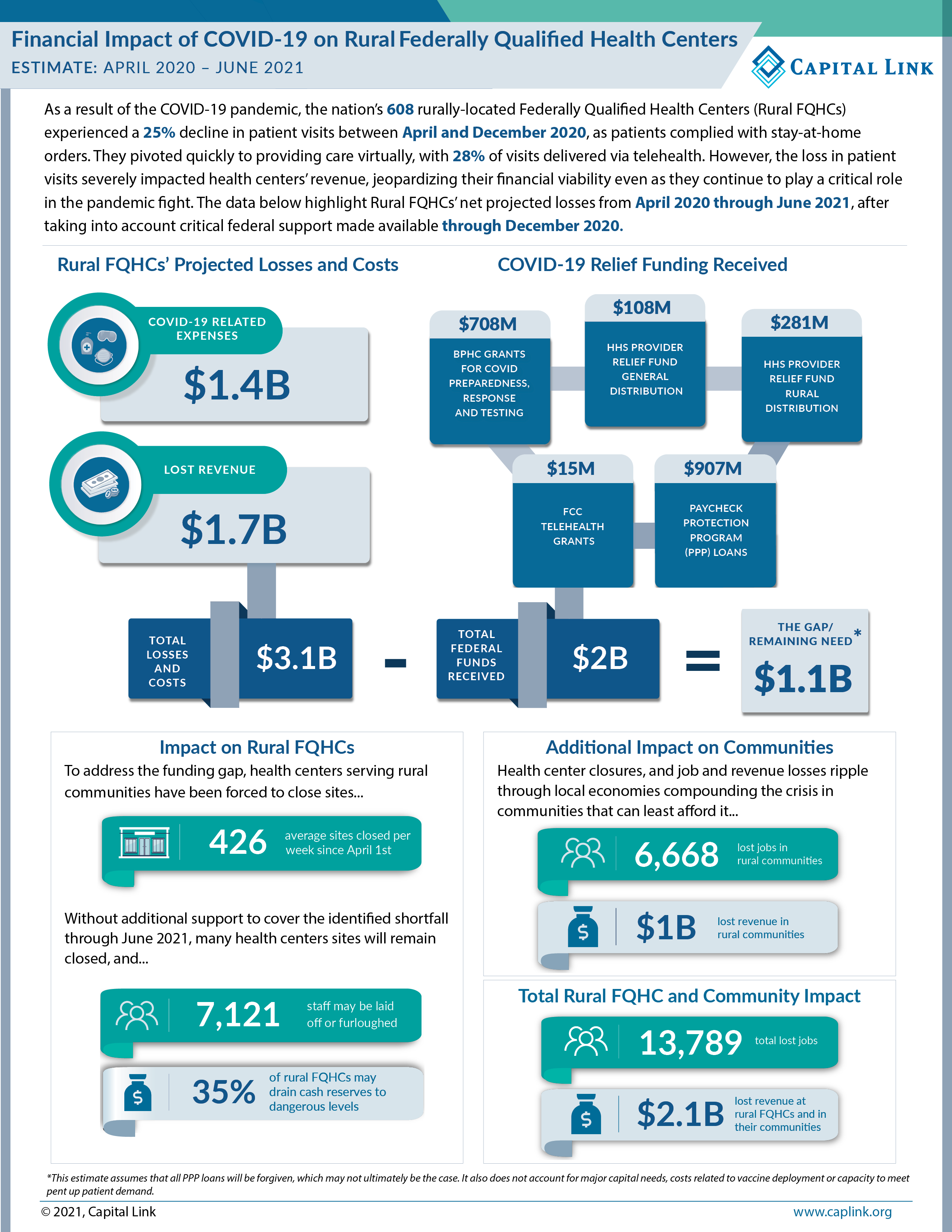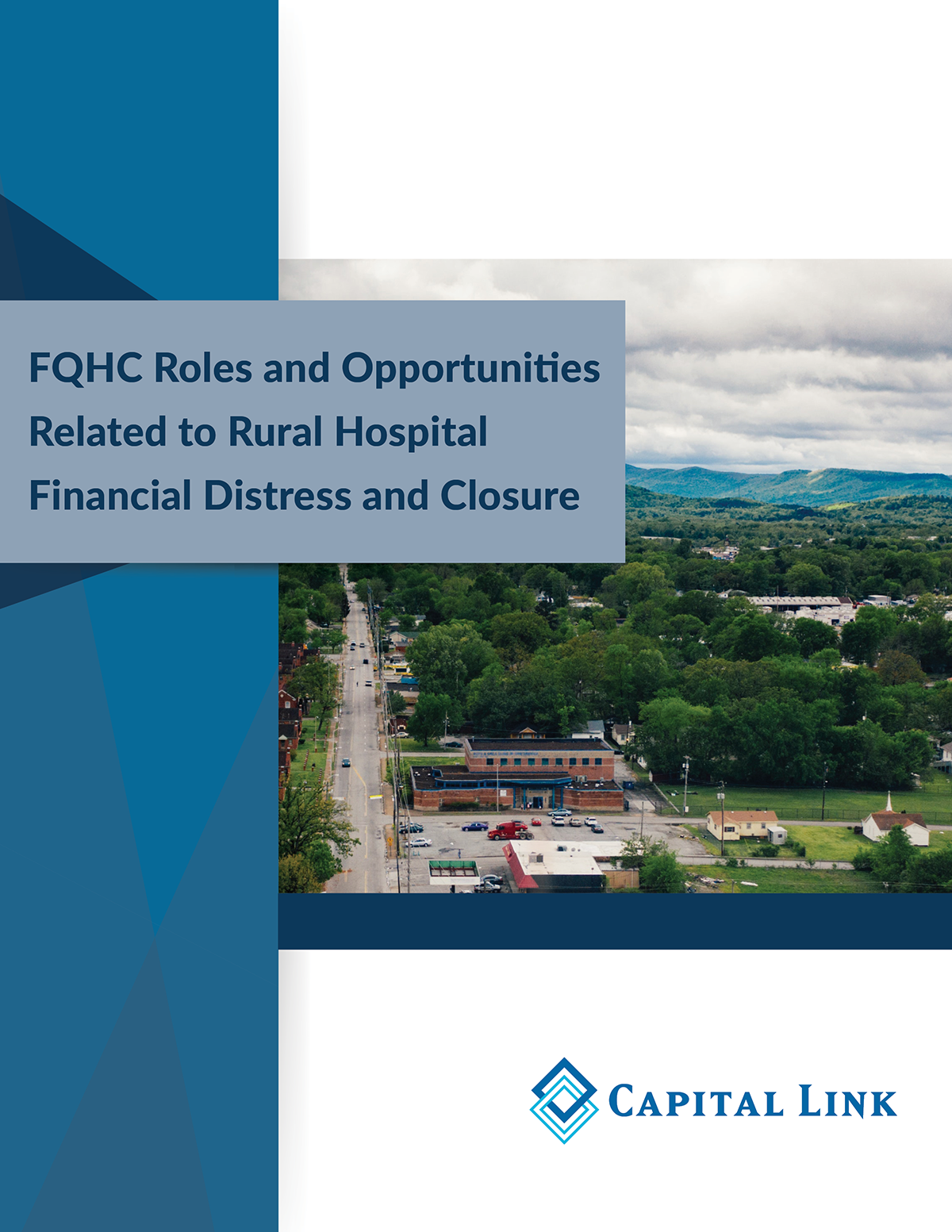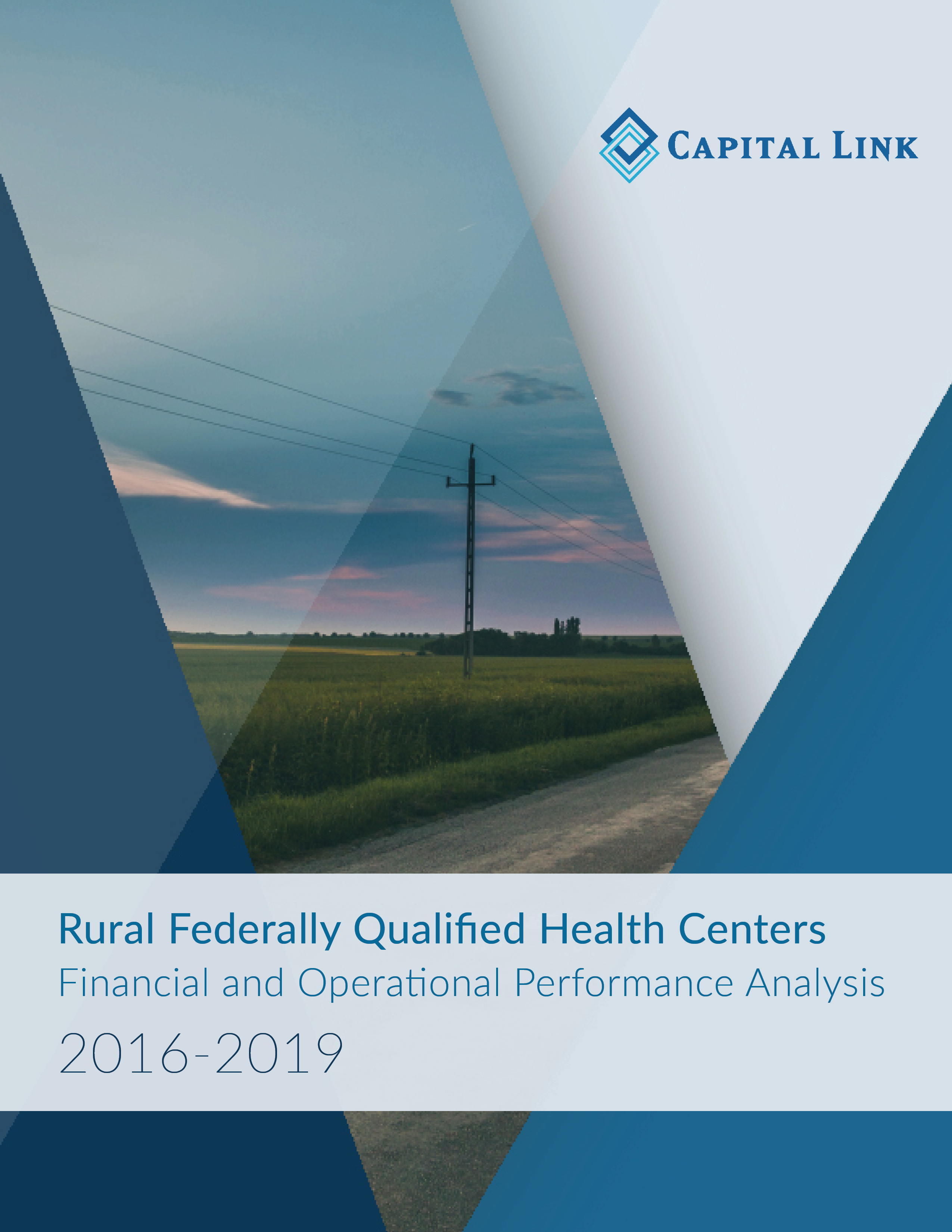Capital Link has just released three new resources that focus specifically on Federally Qualified Health Centers (FQHCs) that serve rural communities. Located in all 50 states and territories, rural FQHCs are the healthcare safety net in many parts of the rural US. They provide comprehensive primary care and other critical health services including dental, prenatal care, and mental and behavioral health to rural residents. Rural FQHCs also often serve as major employers in their communities.
 Financial Impact of COVID-19 on Rural Federally Qualified Health Centers
Financial Impact of COVID-19 on Rural Federally Qualified Health Centers
A new report from Capital Link illustrates how the pandemic has financially impacted health centers that serve rural communities. Results show that the nation’s more than 608 rural Federally Qualified Health Centers (FQHCs) have experienced a 25% decline in patient visits between April and December 2020, as patients complied with stay-at-home orders. After taking into account federal relief funding, rural FQHCs experienced net losses of $1.1 billion. Without additional support to cover the identified shortfall through June 2021, many health centers sites will remain closed, 7,121 staff may be laid off or furloughed, and 35% of FQHCs may drain cash reserves to dangerous levels. VIEW REPORT >
 FQHC Roles and Opportunities Related to Rural Hospital Distress and Closure
FQHC Roles and Opportunities Related to Rural Hospital Distress and Closure
This publication provides a high-level examination of the lived experiences of FQHCs that serve rural communities, particularly in the context of rural hospital financial distress and closure. Utilizing a recently conducted national assessment of rural FQHCs, it seeks to document health centers’ experiences with hospital distress and closure over the past five years and to evaluate the extent to which these centers have and can play an instrumental role in preserving access to care under these difficult circumstances. VIEW PUBLICATION >
 Rural Federally Qualified Health Centers Financial and Operational Performance Analysis 2016-2019
Rural Federally Qualified Health Centers Financial and Operational Performance Analysis 2016-2019
This report provides an aggregate financial and operational profile of rural Federally Qualified Health Centers. It offers a framework for identifying the financial strengths, challenges, and benchmarks that support opportunities for rural FQHC performance improvement through an examination of multi-year trends and median results. The report also provides comparisons between rural, urban, and national performance, as well as recommended benchmarks, where available. VIEW ANALYSIS >

